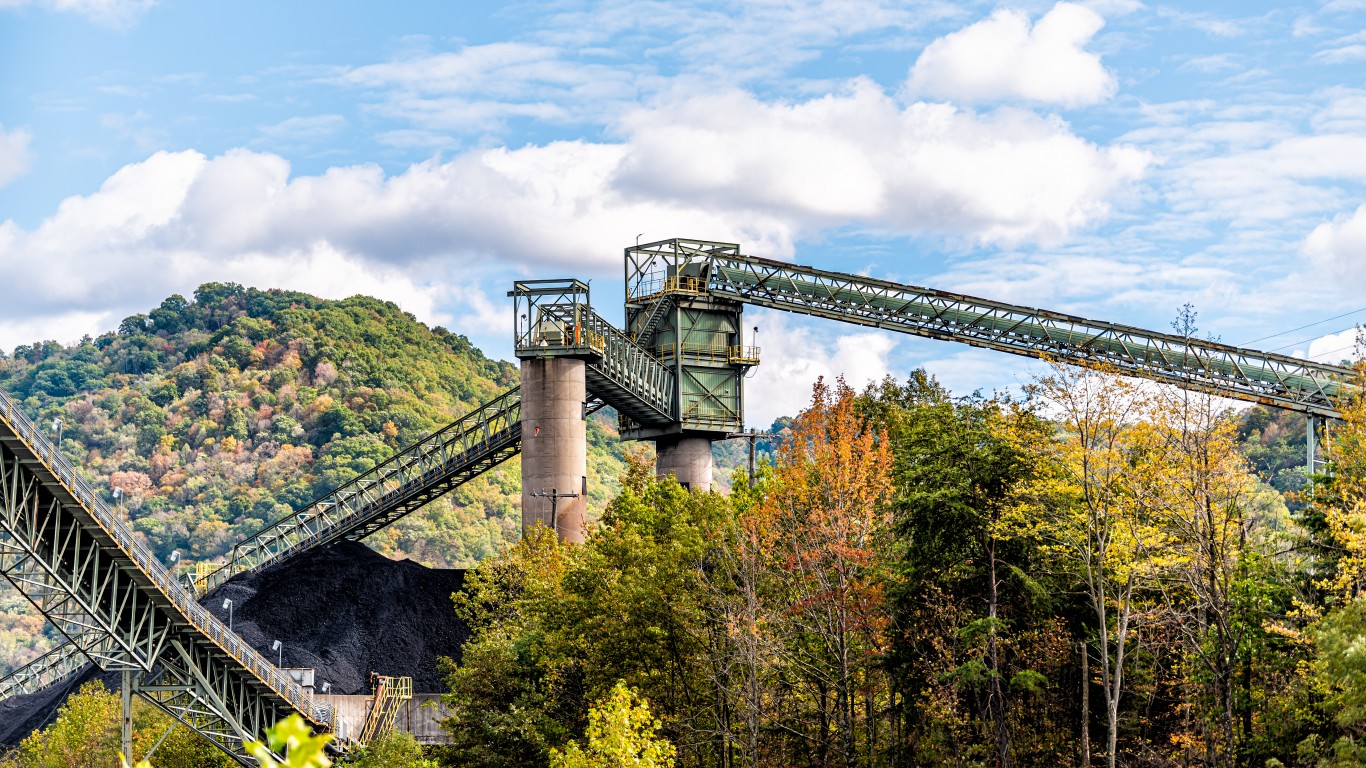Investing
4 Magnificent Ultra-High-Yield Dividend Stocks Investors Can Hold for Decades

Published:

24/7 Wall St. Insights
Investors love dividend stocks, especially the ultra-high-yield variety, because they offer a significant income stream and have massive total return potential. Total return includes interest, capital gains, dividends, and distributions realized over time. In other words, the total return on an investment or a portfolio consists of income and stock appreciation.
Let’s take a closer look at the concept of total return. Imagine you purchase a stock at $20 that offers a 3% dividend. If the stock price rises to $22 within a year, your total return is 13%. This is calculated by adding the 10% increase in stock price to the 3% dividend.
Most analysts and economists on Wall Street feel that after the first big rate cut of 50 basis points, or half of 1%, investors can expect another 50 basis points in 2024, with 25 coming in November and December. They also predict another 100 basis points next year and a final 25 basis point cut in 2026. This should get the federal funds rate to the 3.00% to 3.25% level.
One thing is for sure: as interest rates drop, so will yields on certificates of deposit, high-yield money market funds, bonds, and other passive income investments. We screened our 24/7 ultra-high-yield dividend stock research database and found four outstanding companies investors can buy and hold for decades to generate dependable passive income.

While only suited for some, those who are trying to build strong passive income streams can do extremely well having some of these top companies in their portfolios. Paired with more conservative blue-chip dividend giants, investors can use a barbell approach to get passive income streams that make a significant difference.

This leader in the thermal coal business offers solid diversity and a massive 11.43% yield. Alliance Resource Partners L.P. (NASDAQ: ARLP) is a diversified natural resource company that produces and markets coal primarily to utilities and industrial users in the United States.
The company operates through four segments:
It produces a range of thermal and metallurgical coal with sulfur and heat contents.
The company operates seven underground mining complexes in:
In addition, it leases land and operates a coal loading terminal on the Ohio River at Mt. Vernon, Indiana, buys and resells coal, and owns mineral and royalty interests in approximately 1.5 million gross acres of oil and gas-producing regions, primarily in the Permian, Anadarko, and Williston Basins.
Further, the company offers various mining technology products and services, including:

The business development company specializes in financing solutions for the middle market.
This high-yielding business development company (BDC) pays a massive 9.37% dividend. Ares Capital Corp. (NASDAQ: ARCC) specializes in acquisition, recapitalization, mezzanine debt, restructurings, rescue financing, and leveraged buyout transactions of middle-market companies.
It also makes growth capital and general refinancing. It prefers to invest in companies engaged in basic and growth manufacturing, business services, consumer products, health care products and services, and information technology service sectors.
The fund will also consider investments in industries such as:
The fund typically invests between $20 million and $200 million and a maximum of $400 million in companies with an EBITDA between $10 million and $250 million. It makes debt investments between $10 million and $100 million.
The fund invests through:
The fund also selectively considers third-party-led senior and subordinated debt financings and opportunistically finds the purchase of stressed and discounted debt positions.
Ares Capital Corporation prefers to be an agent and lead the transactions it invests in. The fund also seeks board representation in its portfolio companies.

This is another well-known name on Wall Street. It offers a solid entry point at current levels and pays a massive 14.48 dividend. FS KKR Capital Corp. (NASDAQ: FSK) is a business development company specializing in investments in debt securities. It seeks to purchase interests in loans through secondary market transactions or directly from the target companies as primary market investments.
The company also seeks to invest in:
The firm also receives equity interests in connection with debt investments, such as warrants or options for additional consideration. It also seeks to purchase minority interests in common or preferred equity in our target companies, either in conjunction with one of the debt investments or through a co-investment with a financial sponsor.
The fund may invest in corporate bonds and similar debt securities opportunistically. It does not seek to invest in start-ups, turnaround situations, or companies with speculative business plans. It aims to invest in small and middle-market companies in the United States.
FS KKR seeks to invest in firms with annual revenue between $10 million and $2.5 billion. It aims to exit from securities by selling them in a privately negotiated over-the-counter market.

This high-yielding company, run by real estate legend Barry Sternlicht, offers big-time total return potential and a 9.37% dividend. Starwood Property Trust Inc. (NYSE: STWD) operates as a real estate investment trust (REIT) in the United States, Europe, and Australia.
It operates through four segments:
The Commercial and Residential Lending segment:
The Infrastructure lending segment originates, acquires, finances, and manages infrastructure debt investments.
The Property segment primarily develops and manages equity interests in stabilized commercial real estate properties, such as multifamily properties and commercial properties subject to net leases, that are held for investment.
The Investing and Servicing segment:
Goldman Sachs Top Analysts Love 5 Buy-Rated High-Yield Dividend Stocks
Are you ahead, or behind on retirement? For families with more than $500,000 saved for retirement, finding a financial advisor who puts your interest first can be the difference, and today it’s easier than ever. SmartAsset’s free tool matches you with up to three fiduciary financial advisors who serve your area in minutes. Each advisor has been carefully vetted and must act in your best interests. Start your search now.
If you’ve saved and built a substantial nest egg for you and your family, don’t delay; get started right here and help your retirement dreams become a retirement reality.
Thank you for reading! Have some feedback for us?
Contact the 24/7 Wall St. editorial team.